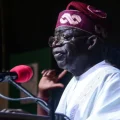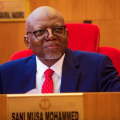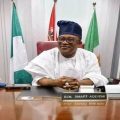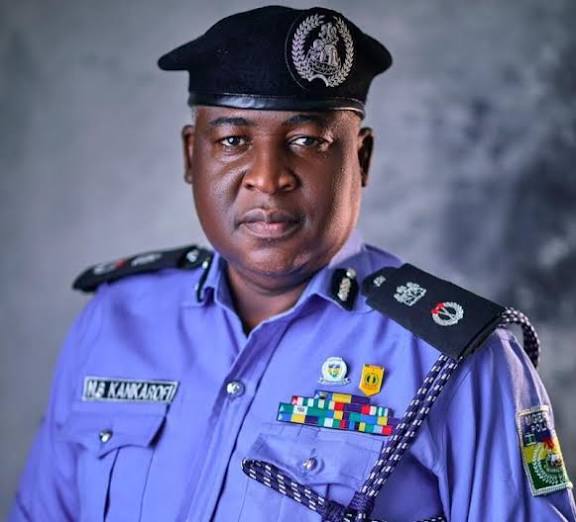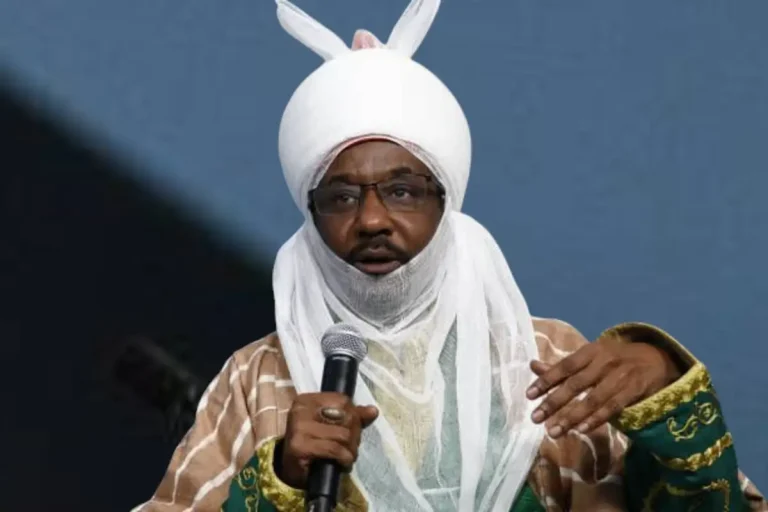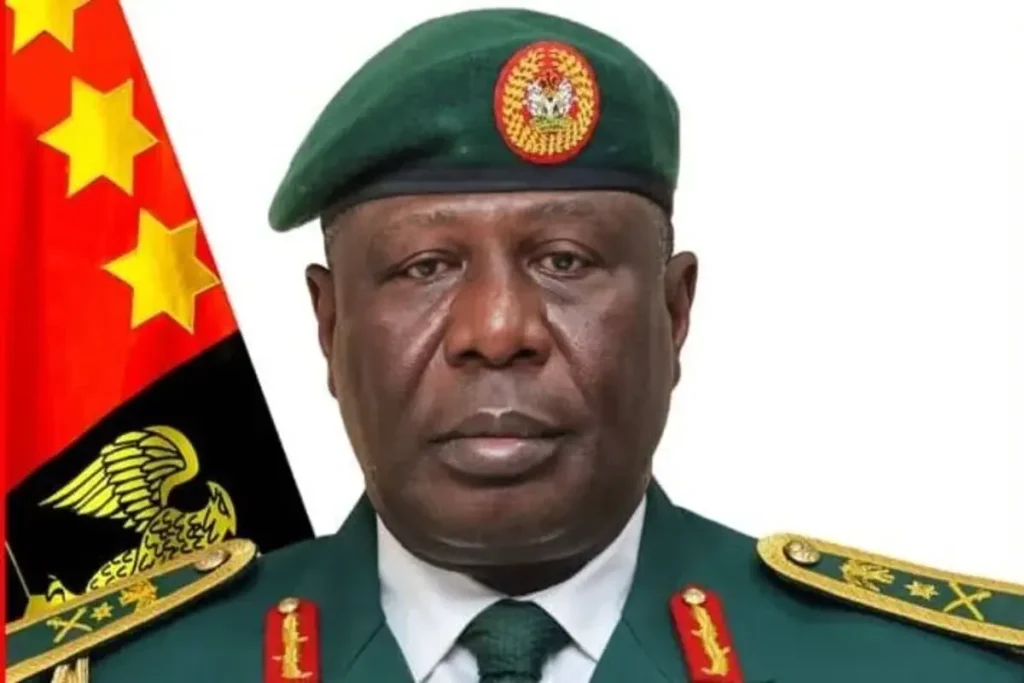
Lieutenant General Olufemi Oluyede appears before lawmakers during his Senate confirmation hearing in Abuja.
Abuja, Oct 27 (Epicstorian News) — The Nigerian Senate has fixed Wednesday for the screening and confirmation of the newly appointed service chiefs following President Bola Tinubu’s formal request for expedited approval under Section 18(1) of the Armed Forces Act.
According to reports published by Reuters, President Tinubu’s letter to the National Assembly outlined the urgency of confirming the appointments to ensure an immediate transition in the nation’s military leadership.
The nominees include Lieutenant General Olufemi Oluyede as Chief of Defence Staff, Major General Waidi Shaibu as Chief of Army Staff, Rear Admiral Ibrahim Abbas as Chief of Naval Staff, and Air Vice Marshal S.K. Aneke as Chief of Air Staff.
In his address to lawmakers, Akpabio stated that the decision to conduct the screening of all service chiefs simultaneously was designed to promote continuity, efficiency, and cohesion within the armed forces.
He noted that a swift confirmation process would enhance coordination among the armed services and provide the new leadership with the legitimacy required to operate effectively under Nigeria’s constitutional framework.
“This matter is of utmost national importance,” Akpabio said, reiterating that the Senate would ensure the exercise is transparent, thorough, and in compliance with the Armed Forces Act.
Senate confirmation seen as test of executive-legislative cooperation
The forthcoming Senate confirmation marks a crucial moment in the relationship between the Executive and the Legislature, following recent tensions over budgetary delays and national defence policies.
Analysts told BBC News that the Senate’s decision to fast-track the process indicates renewed collaboration aimed at reinforcing Nigeria’s security architecture amid ongoing regional instability.
Lawmakers are expected to question the appointees on issues ranging from counterterrorism strategy to military procurement transparency.
Security experts believe the confirmation could also determine the direction of Tinubu’s defence policy, particularly his emphasis on joint operations between the army, navy, and air force in tackling insurgency and maritime threats.
Lieutenant General Oluyede, who previously served as Theatre Commander of Operation Hadin Kai in the North-East, has been credited with restructuring field command operations against Boko Haram and ISWAP elements.
His appointment, according to the presidency’s communication, is part of a broader plan to realign the armed forces with modern defence doctrines and enhance regional cooperation within the Sahel and Gulf of Guinea corridors.
National security strategy under review as new chiefs take charge
The Senate confirmation coincides with Nigeria’s renewed national security review, which prioritizes intelligence integration, troop welfare, and advanced technology deployment.
Defence observers said the Senate’s prompt action could help avoid leadership gaps that have historically hindered command transitions within the armed forces.
Senator Tokunbo Abiru, chairing the Defence Committee, said the chamber intends to ensure that all nominees meet constitutional and professional standards before approval.
He added that the Senate’s oversight responsibility includes verifying the nominees’ previous command performance and adherence to operational ethics.
The Committee on Defence is also expected to invite the nominees for closed-door deliberations before the final plenary confirmation, a process Akpabio said would take place “without unnecessary delay.”
According to security analysts, Tinubu’s administration views the confirmation as essential to maintaining military morale following the retirement of General Christopher Musa, the outgoing Chief of Defence Staff.
Oluyede’s nomination represents a generational shift in the armed forces, with the president seeking to balance experience with innovation in military leadership.
Military leadership transition aimed at restoring command stability
The Defence Headquarters announced earlier that the outgoing chiefs had completed handover briefings in preparation for the Senate’s decision, describing the transition as part of a “seamless chain of command.”
Rear Admiral Abbas, who will lead the navy if confirmed, has extensive experience in maritime security and anti-piracy operations along the Gulf of Guinea, where Nigeria has recently regained international commendation for reducing sea crime rates.
Similarly, Air Vice Marshal Aneke, nominated as Air Chief, was credited with advancing UAV surveillance capability during his tenure at the Tactical Air Command.
The presidency’s letter highlighted that the appointments were made “in consultation with the Council of Defence,” aligning with constitutional provisions under Section 18(1) of the Armed Forces Act.
President Tinubu requested the Senate to accord the nominations “urgent legislative consideration,” stressing that prompt confirmation would ensure seamless continuation of critical defence operations.
Senate insiders said the chamber aims to complete the screening and voting process in a single session, reflecting its commitment to national defence priorities.
Senate confirmation linked to broader defence reforms
The Senate confirmation process aligns with Nigeria’s ongoing defence reform initiative, which seeks to restructure the command hierarchy and strengthen civil-military relations.
Officials said the initiative includes revising operational doctrines, expanding joint task commands, and investing in indigenous defence manufacturing.
The reforms also align with the administration’s ambition to achieve a $1 trillion economy by 2030, anchored on stable governance and improved security infrastructure.
Defence sources told Reuters that the Federal Government’s new national security architecture would emphasize intelligence sharing and inter-agency cooperation to counter rising transnational threats.
Meanwhile, regional observers believe the confirmation signals Tinubu’s determination to professionalize the military and enhance accountability at the highest command levels.
Related: Hisbah arrests 25 over alleged gay wedding in Kano, Nigeria amid Sharia law enforcement
The Nigerian Armed Forces, one of the largest in Africa, continues to confront challenges including terrorism, banditry, oil theft, and cross-border insurgency in the Sahel region.
The Senate’s expeditious handling of the nominations is expected to reinforce confidence in the Executive’s commitment to defence modernization and governance stability.
